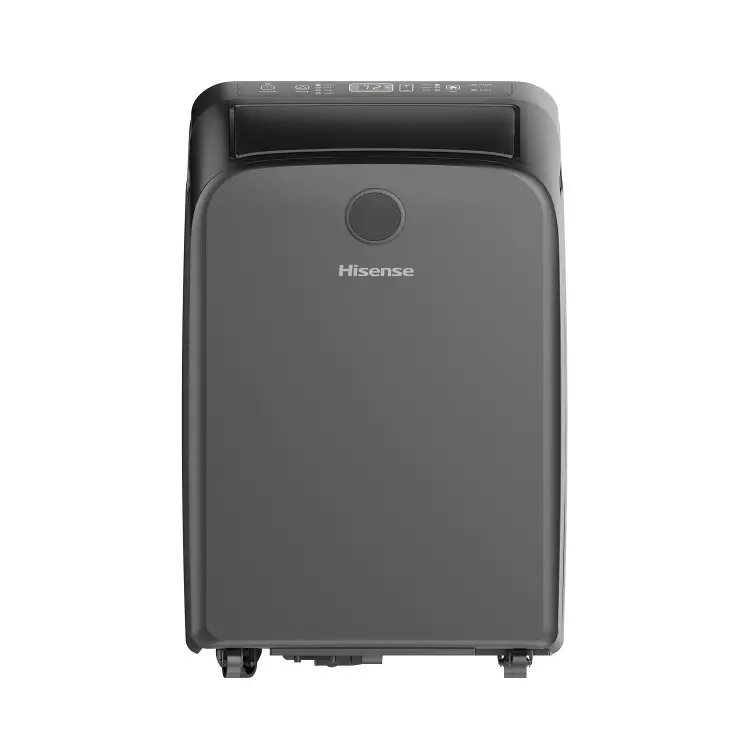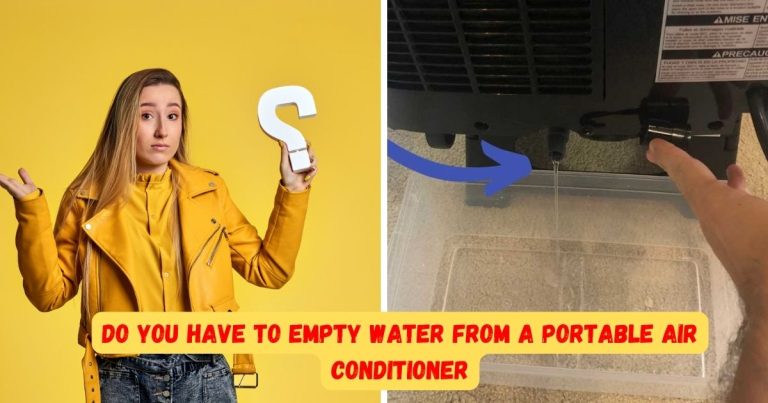Why Does My Portable Ac Smell Bad? 6 Solutions To Eliminate Odor
Your portable AC may smell bad due to various reasons, including: 1. Mold or mildew growth inside the unit 2. Accumulated dust and debris 3. Clogged filters 4. Stagnant water in the unit 5. Insufficient cleaning and maintenance. Regular cleaning and proper maintenance can help eliminate the bad smell.
Are you relying on a portable air conditioner to keep your living space cool and comfortable during these sweltering summer months? If so, you may have encountered a rather unpleasant problem – a bad smell emanating from your portable AC unit. The last thing you want is for your cooling oasis to be filled with a musty odor or the stench of mold.
But fear not, because in this blog article, we will explore the reasons why your portable AC might smell bad and provide you with practical solutions to eliminate those odors once and for all. For homeowners and renters alike, maintaining a clean and fresh indoor environment is of utmost importance.
However, even if you diligently clean and maintain your portable air conditioner, it can still develop odors that make your living space less enjoyable. The culprit could be mold, bacteria, or other factors that create an unpleasant scent when your AC is in operation. In this comprehensive guide, we will delve into the various causes of bad smells in portable AC units.
From the growth of mold in the moisture-laden parts of the unit to the accumulation of dirt and debris, we will uncover the sources of these odors. More importantly, we will equip you with effective strategies to prevent and eliminate bad smells, ensuring that your portable air conditioner operates efficiently and keeps your home smelling fresh and clean. Whether you are a novice when it comes to understanding how air conditioning units work or you have some knowledge in this area, this article will provide you with valuable insights and practical tips to tackle the problem of a smelly portable AC.
Understanding the Causes of Bad Smells in Portable AC Units
1. Mold and Mildew Growth
Mold and mildew are common culprits behind the unpleasant smell coming from your portable AC unit. These fungi thrive in moist and dark environments, making the internal components of your AC an ideal breeding ground. When moisture accumulates in the unit, such as from condensation, it creates the perfect conditions for mold and mildew to grow.
Prevention and Solution:
- Regularly clean and dry the unit to prevent moisture buildup.
- Use a dehumidifier in the room to reduce humidity levels.
- Consider installing a drain kit to ensure proper drainage of excess moisture.
- Use an anti-mold spray or solution to clean the unit’s internal components.
2. Accumulation of Dirt and Debris
Dirt, dust, and other debris can accumulate in the filters, coils, and vents of your portable AC unit over time. This build-up not only affects the performance of the unit but also contributes to the development of unpleasant odors. As the air passes through the dirty components, it carries the odor and distributes it throughout the room.
Prevention and Solution:
- Regularly clean and replace the filters according to the manufacturer’s instructions.
- Vacuum or brush off any visible dirt or debris from the unit’s exterior.
- Use a coil cleaning solution to remove dirt and grime from the coils.
- Clean and sanitize the vents to eliminate any trapped odors.
3. Stagnant Water in the Drain Pan
The drain pan of your portable AC unit is designed to collect and drain condensate from the cooling process. However, if the drain pan becomes clogged or the drain line is blocked, stagnant water can accumulate. This stagnant water not only creates a breeding ground for mold and bacteria but also emits a foul smell.
Prevention and Solution:
- Regularly inspect and clean the drain pan to ensure proper drainage.
- Clear any blockages in the drain line using a thin brush or pipe cleaner.
- Add a few drops of bleach to the drain pan to kill bacteria and eliminate odors.
- Consider using a condensate pump to remove excess water from the unit.
4. Inadequate Ventilation
Poor ventilation can contribute to the build-up of odors in your portable AC unit. When the unit does not have proper airflow, moisture and stale air become trapped, leading to the growth of mold and the accumulation of unpleasant smells. Additionally, inadequate ventilation can lead to poor air quality and discomfort in the room.
Prevention and Solution:
- Ensure that the unit is positioned in a well-ventilated area.
- Keep doors and windows open to promote air circulation.
- Use a fan to improve air movement in the room.
- Consider installing a ventilation fan or exhaust system for better airflow.
Effective Strategies to Prevent and Eliminate Bad Smells
1. Regular Maintenance and Cleaning
One of the key ways to prevent bad smells in your portable AC unit is through regular maintenance and cleaning. Following the manufacturer’s instructions, clean or replace filters, coils, and other components on a scheduled basis. This helps to remove any dirt, debris, or mold that may be causing the unpleasant odor.
2. Use Air Purifiers
Air purifiers can be a great addition to your portable AC unit to improve air quality and eliminate odors. These devices work by filtering out particles, allergens, and odors from the air, ensuring that the air circulating in your room is clean and fresh. Look for air purifiers with activated carbon filters, as they are particularly effective in absorbing odors.
3. Control Humidity Levels
High humidity levels can contribute to the growth of mold and mildew, leading to bad smells in your portable AC unit. Invest in a dehumidifier to reduce excess moisture in the room. By maintaining optimal humidity levels, you can discourage the growth of mold and prevent the development of unpleasant odors.
4. Professional Inspection and Repair
If you have tried all the DIY solutions and the bad smell persists, it may be time to seek professional help. An HVAC technician can thoroughly inspect your portable AC unit, identify any underlying issues, and perform the necessary repairs or maintenance. This ensures that your unit operates efficiently and eliminates any lingering odors.
A bad smell coming from your portable AC unit can be both unpleasant and concerning. However, armed with the knowledge of the common causes and effective solutions, you can tackle this issue head-on. By implementing regular maintenance, cleaning, and proper ventilation, you can prevent and eliminate bad smells, ensuring that your portable air conditioner keeps your living space cool and fresh all summer long.
How to drain a portable AC without a hose
Why does my portable AC smell bad?
How can I get rid of the bad odor from my portable AC?
Can using scented air fresheners solve the bad odor issue?
Should I consider professional help to fix the bad odor issue in my portable AC?
Can a bad odor from a portable AC be harmful to health?
Final Words: Preventing and Eliminating Bad Smells in Portable AC Units
In conclusion, bad smells in portable AC units can be caused by several factors, including mold and mildew growth, accumulation of dirt and debris, stagnant water in the drain pan, and inadequate ventilation. To prevent and eliminate these odors, it is important to regularly clean and dry the unit, use a dehumidifier to reduce humidity levels, clean and replace filters, vacuum or brush off visible dirt, and sanitize the vents.
Additionally, regular inspection and cleaning of the drain pan, clearing any blockages in the drain line, and ensuring proper ventilation can help prevent the development of unpleasant smells. For effective strategies to prevent and eliminate bad smells, regular maintenance and cleaning of the unit is crucial.
Use of air purifiers with activated carbon filters can also help improve air quality and eliminate odors. Controlling humidity levels in the room with the help of a dehumidifier can discourage the growth of mold and prevent the development of bad smells. If DIY solutions do not work, seeking professional help from an HVAC technician for inspection and repair may be necessary.
By implementing these preventive measures and solutions, users can ensure that their portable AC units operate efficiently and keep their living spaces cool and fresh throughout the summer season.






